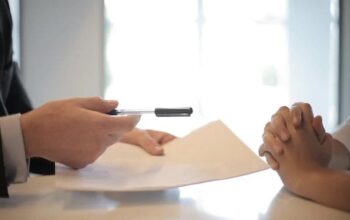Are you considering buying a house? Perhaps you’re unsure of whether you’re ready to take the plunge. It’s a big deal, after all. And there are a lot of underlying considerations to make. Regardless of other factors, the first thing you have to start with is your budget and expenses. Having a firm grasp of your financial standing can give you a clearer picture of the scenario. So, how do you start?
1. Existing Debt
Do you have any existing debts? Or currently amid a credit card debt or a personal loan with considerable interest rates? If the answer is yes, then you’re most likely not ready to purchase a home.
Buying a house is a huge investment. And if you have existing debt, it will be equal to spending money you don’t have. Remember that it’s not just the price of the house. Besides the mortgage, you’ll have to pay for maintenance and repairs. Also, any furnishing or décor you want will also incur additional costs. Unseen costs, such as inspection fees and closing expenses, also add to the cost. One of the main costs of the mortgage will be the down payment. But this cost is exempted for those who can secure a Veteran’s Affairs Loan. Essentially, it’s not a good idea to make such a big purchase (with accompanying costs) if you aren’t well ahead of your financial requirements.
The best bet here is to clear your current debts before taking on more financial responsibilities.
2. Emergency Fund
It’s a good idea to keep a few months’ worth of living expenses in a separate account. A good rule of thumb for this is to take three-four months-worth of expenses. This fund should only be for emergency expenditure – job loss, unexpected hospital bills, etc. Remember, it’s not the kind of fund you use for holiday expenses or family outings.
Without an emergency fund, you’re one major expense away from financial disaster. More to the point, it means you should not invest in a major purchase like a house just yet. Get that emergency fund going first.
3. Future/Retirement fund
So you’ve covered your debt and have an emergency fund in place; Great! Now, consider if you have an adequate retirement plan in place. Many workplaces run the 401K. If you’re running a plan like that, try to get hold of the employer’s full match by contributing adequate amounts.
You can also opt for an IRA. There are a few different variations – Traditional IRA, Roth IRA, etc. You can open an IRA even without an employer benefits package, so it’s pretty straightforward. Ideally, you should get at least 10-15% of your income towards a future retirement fund. Without a more secure future, you may end up having to sell the house you so lovingly bought.
4. Finally, your Budget
Even after taking care of the debts and emergency savings, you still need to look at your budget carefully. Can you afford a new home? By this, we mean all the additional costs that come with the new house. It’s advisable to have 30-40% of your income reserved for home-related expenditure. If you think you’ll have trouble marking this much for home expenses, maybe you’re not ready for a home-purchase yet.
Remember that renovation, maintenance, touchups, etc. don’t just happen after purchase. They can be ongoing expenses. You’ll need a budget that fits all these extra expenses that occur once in a while. Another 50% or so of your income should cover daily expenses, groceries, utilities, etc. And the remaining 10-20% should go into savings.
Final thoughts
These are outlines for an ideal financial condition before you can confidently buy a house. Remember that they aren’t hard and fast financial rules. But if you want a stable future with sound financial prospects, you have to consider each of these factors before purchasing a house.



